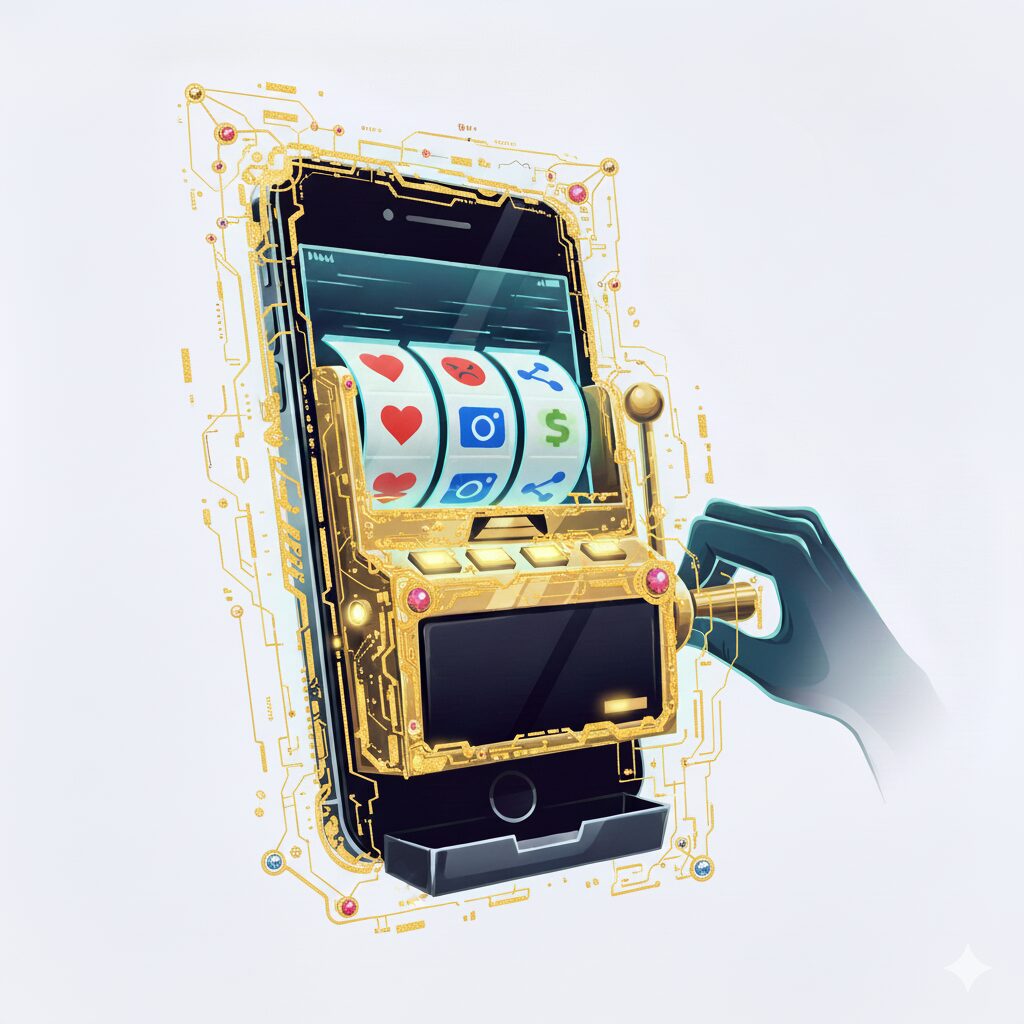Your phone is a slot machine, and the coin is your attention. Here’s how to stop pulling the lever.
I sit down at my desk, ready to tackle that important project. Then, a buzz from my phone. A single notification; I’ll just take a quick look before I start.
Twenty minutes later, I surface with my focus shattered, heart thumping with vague anxiety, and zero memory of what I’d planned to accomplish.
For a long time, I blamed myself: Weak willpower. Poor discipline. The usual self-flagellation. But eventually I realized it wasn’t my failing; it was the algorithm’s success.
The Slot Machine in Your Pocket
Here’s what I wish I had realized a decade ago: the digital world we inhabit wasn’t designed to inform us — it was engineered to hook us, to hijack our attention. The social media feeds, news sites, and video platforms we visit aren’t just poorly organized information sources. They’re sophisticated behavioral laboratories optimized for a single outcome: keeping us engaged long enough to serve another ad or boost their “engagement” statistics.
Think of your browser or you social media app as a casino slot machine. But instead of coins, you’re spending attention. The variable reward schedule (sometimes interesting content, mostly not) keeps you pulling that lever. The notification badges are the flashing lights, designed to keep you at the table just a little bit longer.
Online algorithms exploit the gap between our emotional response (a tenth of a second) and the time our analytical thinking kicks in(half a second). That “so brief you don’t even sense it” window is where manipulation happens — trigger the emotion, bypass the analysis, capture the attention.
Why This Now Hits Differently
I used to move through information like a hummingbird: quick, efficient, always darting to the next thing. That rapid attention felt productive. But looking back, I see how shallow it was: I was consuming, not evaluating; reacting, not reflecting.
But over the years, I’ve learned to slow down. I’ve developed the pattern recognition skill that comes from seeing enough cycles to know when I’m being played. It helps that I’m old enough to remember what information consumption looked like before it was weaponized.
Three Questions That Break the Spell
Before you catch yourself in a twenty-minute scroll spiral, asking these questions can create breathing room between trigger and response:
- “Who benefits from me feeling this way?” Follow the incentive. Is someone trying to sell something? Win a vote? Generate emotion-based clicks? The answer reveals whether you’re being informed or manipulated.
- “What am I not being shown?” The most sophisticated manipulation isn’t what’s present — it’s what’s absent. Missing context, omitted baselines, carefully cropped screenshots. Would your reaction be the same if you saw the full picture?
- “Will this matter next week?” Most of what demands your urgent attention evaporates within a few days. The things that actually matter — your health, your relationships, your work — those endure. This question sorts signal from noise with remarkable efficiency.
The Real Cost (And How To Avoid Paying It)
It isn’t about wasted time. It’s about something more fundamental: your capacity for sustained attention, your ability to think deeply about complex problems, your trust in your own judgment.
When you spend hours being emotionally jerked around by content engineered to provoke rather than inform, you’re not just losing time. You’re training your brain to operate in a constant state of low-grade emergency. No wonder you feel drained.
But (and this is crucial) these effects aren’t inevitable. The moment you recognize that the system is optimized for engagement rather than truth, you can start making different choices. Not perfect choices. Not immune-to-everything choices. But more conscious ones.
Start with one simple habit: when something makes you want to immediately share or comment, wait ten minutes. That’s it. Just ten minutes to let the emotional spike settle and the questions emerge. You’ll be surprised how often that urgent feeling evaporates once your analytical mind has had time to persuade your emotional one.
The platforms will keep fishing with their carefully calibrated hooks. But you don’t have to keep biting. Once you recognize the hook for what it is — a tool designed to catch you — the bait no longer looks so appealing.
If you found this post of interest, my book, Your Mind Is Under Attack, provides the complete system for recognizing and defending against manipulative communication.

Leave a Reply